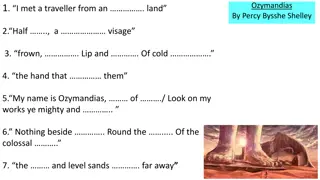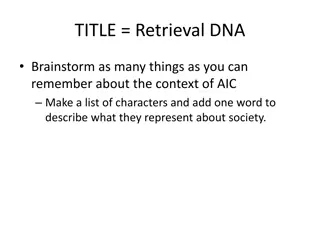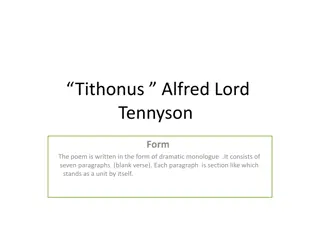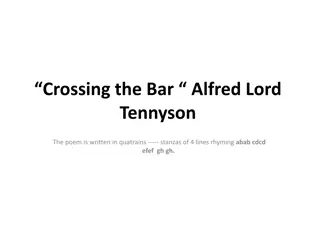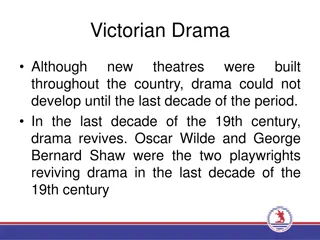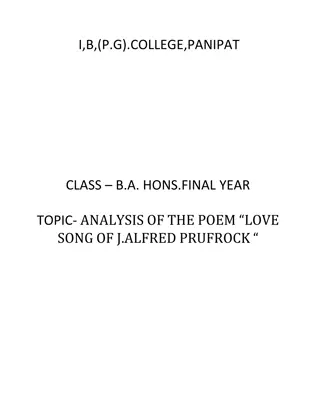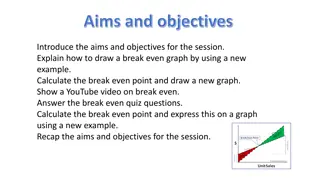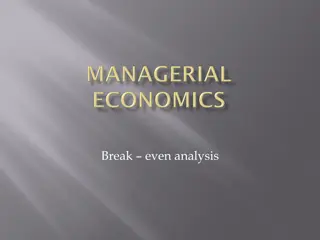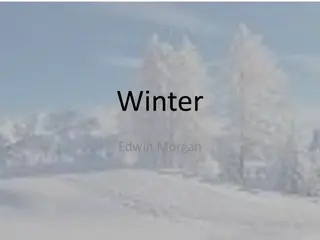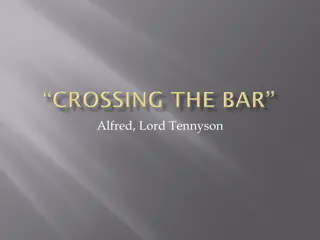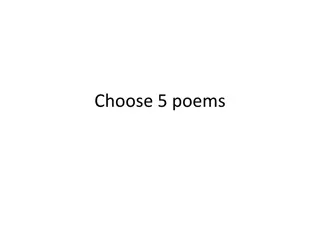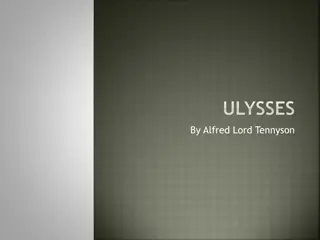Analysis of "Break, Break, Break" by Alfred, Lord Tennyson
The poem "Break, Break, Break" by Alfred, Lord Tennyson is a poignant elegy mourning the loss of a dear friend, expressed through the metaphor of the sea crashing against the stones. The poet's sorrow and longing for the presence of his departed friend are vividly depicted in four stanzas, each capturing various emotions and reflective moments. Tennyson's masterful use of imagery and melancholic tone resonates with readers as he navigates themes of grief and remembrance.
Download Presentation

Please find below an Image/Link to download the presentation.
The content on the website is provided AS IS for your information and personal use only. It may not be sold, licensed, or shared on other websites without obtaining consent from the author. Download presentation by click this link. If you encounter any issues during the download, it is possible that the publisher has removed the file from their server.
E N D
Presentation Transcript
BREAK, BREAK, BREAK BY ALFRED, LORD TENNYSON
STANZA 1 Break, break, break, On thy cold gray stones, O Sea! And I would that my tongue could utter The thoughts that arise in me. O, well for the fisherman's boy,
STANZA 2 That he shouts with his sister at play! O, well for the sailor lad, That he sings in his boat on the bay!
STANZA 3 And the stately ships go on To their haven under the hill; But O for the touch of a vanish'd hand, And the sound of a voice that is still!
STANZA 4 Break, break, break At the foot of thy crags, O Sea! But the tender grace of a day that is dead Will never come back to me.
THE POEM -Tennyson is a famous Victorian poet -The poem is of four stanzas, four lines each. -This poem is an elegy where the poet mourns his friend, Arthur Hallam, who died young because of sickness. It is about losing someone you love.
MEANING BY STANZA Stanza 1: The poet is addressing the sea, crash into the stones, sea! (do what you always do). He said that he wishes he could say the thoughts that come to his mind. He is so sad that he cannot express his feelings.
STANZA 2 The poet says that it is all good for the fisherman s boy and his sister, as they are shouting and playing. Also the sailor is singing in his boat. They are happy doing what they usually do everyday. They are expressing their feelings (singing and shouting). They are going on with their life.
STANZA 3 The huge ships are going to their harbors/shelters under the hill. The poet sees and hears many things but these things do not distract him from the one thought in his mind; he misses the hand and voice of someone dear to him, his dead friend.
STANZA 4 The poet repeats the first line, but this time the waves have changed , they are breaking at the foot of the crag. The poet says that despite the fact that everything is going on, everything is doing what it usually does, but his friend has gone and will never return back.



